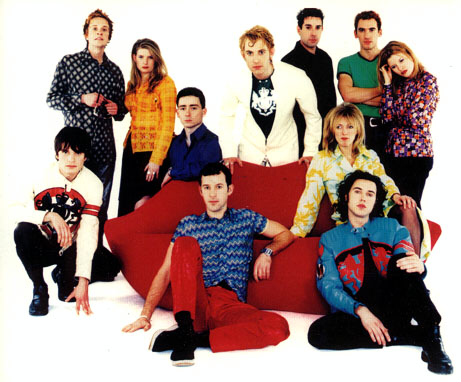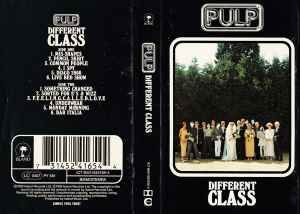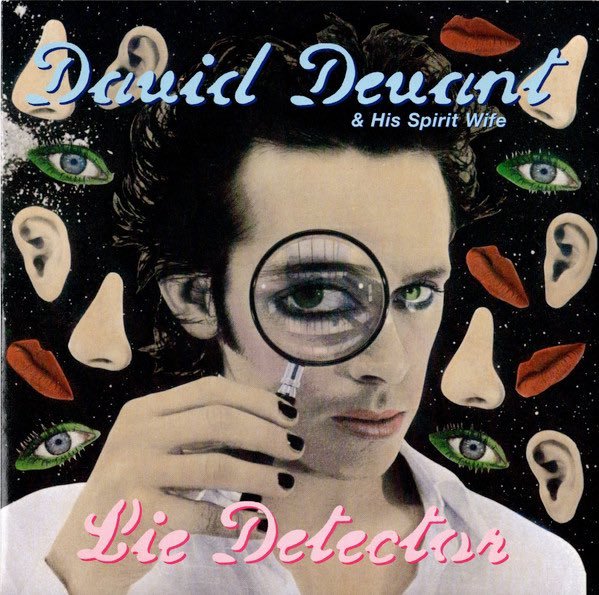I recently finished reading Paul Laird’s book, The Birth and Impact of Britpop. It’s a wonderfully engaging memoir – a very personal love letter to an era, and one that presents a refreshingly different view of the time than the one you’d have in your head if you were but a casual observer, or someone who has learnt about this remarkable period of British music retrospectively. I can’t say I agree with Paul on everything – his penchant for the Inspiral Carpets for example is something I cannot even begin to relate to. And while he was digging the Manchester scene at the turn of the decade, I’d stepped back in time and was discovering the joys of bands that had been and gone – The Only Ones, Johnny Thunders & the Heartbreakers, The Jacobites, Lords of the New Church. But we were both most definitely mis-shapes, kindred spirits.
The indie scene in the UK just left me completely cold. The insipid jangly guitars of the Stone Roses, the tired boredom of the shoegazers, The fucking Farm. And as if that wasn’t enough, we were importing even more dross by the megaton from the US – I mean, Pearl fucking Jam, really? Nirvana were just about palatable, but to me the likes of Soundgarden and Alice in Chains were terminally awful at their best. Sure, at least they knew how to play their guitars loud with some balls, but it was all just so bloody drab. I know they were a reaction to hair metal, and I know Poison and Motley Crue were basically shit Van Halen tribute acts – but at least they looked like they were having fun.
But then something happened. Something completely unexpected. 1992. The DJ played a song one Friday night at the pub. Foot-stomping drums. A beautiful dirty guitar riff that Mick fucking Ronson would have been proud of – even in 1973. What the fuck is this? A fey – and most definitely English – singer goes falsetto in the chorus! Feminine. Ballsy. A pop song. With proper turned-up-to-fucking-10 guitars. THIS IS WHAT WE WANTED AND WE DIDN’T EVEN KNOW IT. Suede had arrived, and they arrived out of nowhere, with no warning. And the world changed. Well, my world changed anyway. And England certainly did too.

Guitars were cool again. Not Jimi Hendrix cool. Not Eddie Van Halen cool. Bernard Butler cool. London cool. Suede weren’t so much a light at the end of the tunnel, they blew the fucking roof off the tunnel. And, no matter what anyone else tells you, this was Britpop ground zero. A new era had begun. Within six months there was a whole new scene, but none of it would have happened without Suede. And nobody was as good as Suede. At least, not yet. It’s easy to forget – in the wake of the monolithic juggernaut of Oasis that was around the corner – that Suede’s debut album was the fastest selling debut album in England in over a decade. Their impact was immense. Within a blink of an eye they had a massive and utterly devoted fanbase of freaks and outcasts.
For the first time I was part of a musical movement right from the beginning. Watched it being born. Watched it grow. Played gigs with my own bands in amongst it all. It was exhilarating.
Like Paul, I always find it a little jarring to see how the Britpop era is remembered in popular culture for Oasis, “Country House” Blur, and blokes who seem to drink a lot of Stella and maybe have a fight before leering their way through an issue of Loaded. Because it wasn’t like that at the time. Well it was, but that was when it had entered the mainstream. It was not in the beginning. The best bands that were associated with the indie scene in 1993 were many things, but Lad Rock was not one of them. In many cases they were the antithesis of what was to come, but nevertheless, part of it they were. Saint Etienne – classy, thoughtful and intelligent pop music. My Life Story – a twelve piece entity made of purest exuberance. Tindersticks – dark enough to make Nick Cave seem like Take That. And Pulp.

Suede were the comet strike that began it all, but Pulp was the star that shone brightest in the end. I think Jarvis Cocker might have been a bit fucked up by the end of the decade, but between 92-96 he could do no wrong and had no equal. And what a run of singles. In this period they released Babies, Razzmatazz, Lipgloss, Do You Remember The First Time, Common People, Sorted for Es & Whizz, Disco 2000 and Something Changed. That is a band at the absolute zenith of their powers. I saw them a few times, and every show was special. First at some old theatre in Covent Garden around 94, where Jarvis entered the fray via a huge Vegas-style staircase centre stage like some spider-limbed God of The People, by some distance the best arrival on stage I’ve yet seen. Pre-stadium Pulp were a sight to behold. I was beginning to freak out on the balcony. We were in a very old building, and EVERYONE was dancing. And the building was shaking. The balcony was bouncing.
But it didn’t fall down, although I later recall reading that major structural damage has been caused to the building that night. By people dancing. Which is pretty awesome.
I saw Pulp again, on a rare foray out of the Thames Valley for me, at a venue in Bournemouth, on the Different Class tour. Pulp could get away with anything by this time, but my mate and I couldn’t, and we endured prolonged harassment for our eye liner, pierced ears and general lack of toxic masculinity, to the point that my friend was actually set on fire in a club, by blokes that definitely loved Oasis. Yeah, good one Bournemouth. Fucking cracking gig though, and well worth sleeping in my car in the middle of winter for.

Pulp provided both the defining album and the best album of the whole era. His’n’Hers had been sublime, but 95’s Different Class was perfection. Kate Bush “Hounds of Love” level perfection. Common People has been played so much it’s lost all meaning, but back them it was the Best Anthem Ever. By a fucking mile. If I had to take one album from Britpop it would be this one every time. No other album in my collection evokes such strong feelings of a particular time and place as this one. When we were still thinking about meeting up in the year 2000. From the opening bars of Mis-shapes to the closing of Bar Italia, I listen to it today and I’m right back there in 1995. I can taste it. Cry it. Rub it into my gums. I think Pulp were as good as any band. Ever.
But they lost something after Russel Senior left.
One other gig always sticks in my mind – My Life Story, at (I think) the London Astoria, circa 1995. My mind was already blown from the genius of support act David Devant & His Spirit Wife, who were not so much a band as a piece of performance art. And not wanky performance art that infuriates you for no particular reason; hilarious art with a soundtrack of brilliant, quirky guitar pop tunes about gingers, Auntie Mabel and Cluedo. Paul’s chapter on this band absolutely nails it, I’m not even going to attempt to follow it. But for all that, the night was My Life Story’s. A thrilling dose of orchestral pop covered in glitter, balloons and miscellaneous shiny things. Girl A, Girl B, Boy C. If I took your hand, would I still be blind? I was utterly enthralled, My Life Story were just so damn joyous. Beer, lads, fags and Loaded? I think not.

I’ve barely scratched the surface here. I haven’t even mentioned Lick, who I’m delighted to note Paul holds in just as high a regard as I do, and in retrospect it’s remarkable that they existed at all. Or Gorkys Zygotic Mynkci. Lad rock? Yeah, right. So much brilliance, so much individuality. Next to no common ground with Oasis. Ocean Colour Scene. Menswear. Northern Uproar. Even now I’m yawning just typing those names.
Britpop is very difficult to pin down. I love that. As Paul says, “maybe the story of Britpop doesn’t exist”. It changed, evolved, was many things. Was it a musical genre? Some people insist yes, but they’re entirely wrong. It was just way too diverse. Was it an era? Yeah. Well sort of. The truth is that it means different things to different people. When I think of this period, I think of Tindersticks, David Devant & His Spirit Wife, My Life Story, Afro, Suede, Saint Etienne, Pulp. One of my mates would probably say The Bluetones, Cast, Shed Seven and Ash, and all of a sudden things look very different. But what is undeniable is that between 1992 and 1996, some of the best and most diverse bands to ever come out of Britain were at their peak, and it was a fucking great place to be. That’s what Britpop was. Paul’s book is a very personal celebration of this. It’s not the history, but it’s a history, and it’s a valid as any other. For anyone curious about this musical movement I can’t recommend it enough.
Check out Paul Laird’s book on his website here: https://thebirthandimpactofbritpop.com